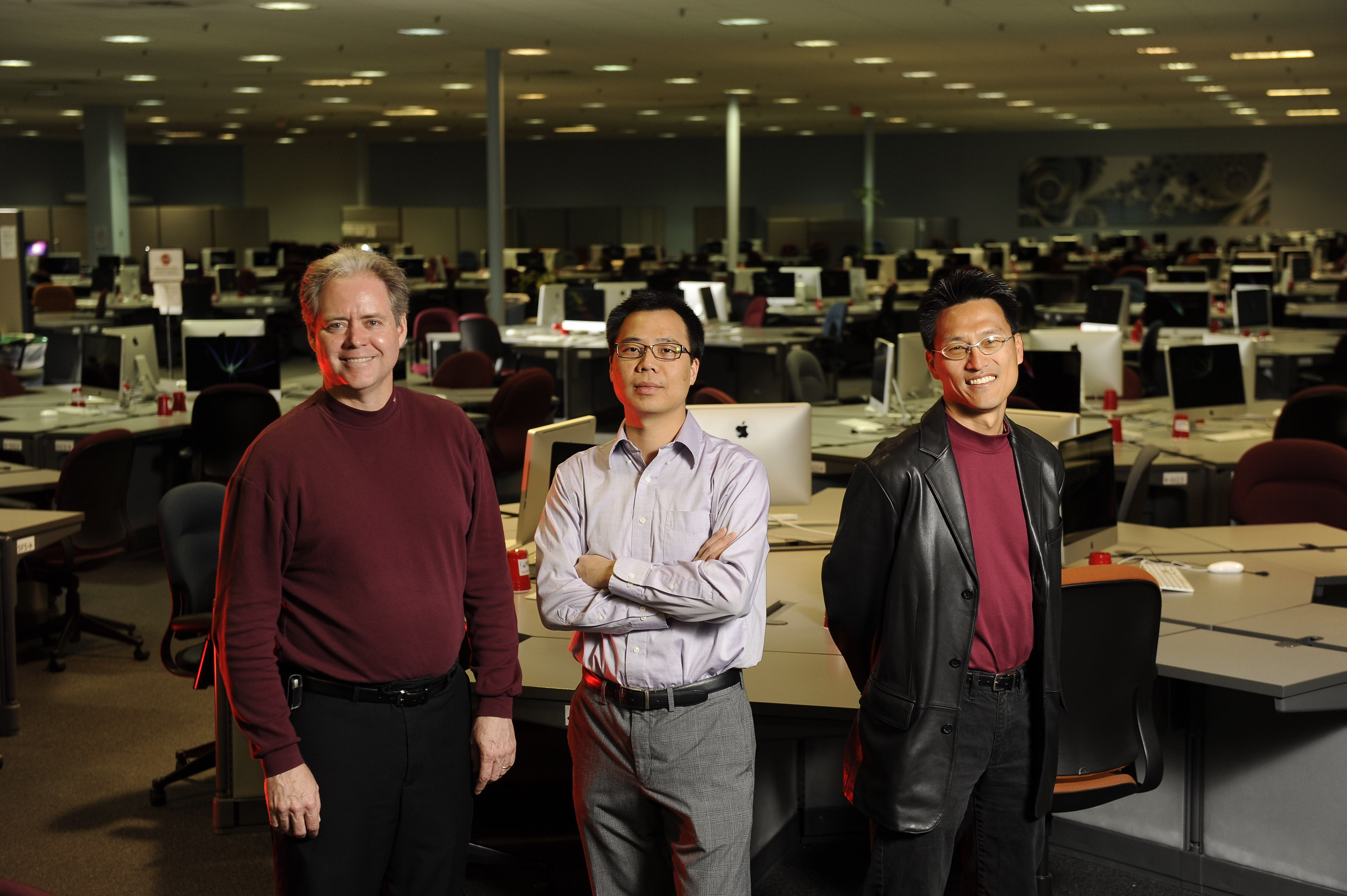Computer scientists' paper among best in history of high-performance distributed computing

A paper titled "MOON: MapReduce on Opportunistic Environments," authored by three current Virginia Tech researchers, Heshan Lin, research scientist, and Wu Feng, associate professor, both of the College of Engineering computer science department, and Mark Gardner of information technology, is included in the listing of the best 20 papers in the 20-year history of the ACM International Symposium on High-Performance Parallel and Distributed Computing.
A special proceedings issue containing these papers will be distributed at HPDC'12, the 21st to be held June 20 to 22 in Delft, the Netherlands. Omni-Press will produce the proceedings.
MOON is a software framework for processing and generating large data sets on dedicated and volunteered computers. In their paper, the authors described MOON as a robust improvement over MapReduce, a framework that supports the ubiquitous Google search engine as well as a myriad of scientific and engineering applications now.
What makes MOON more robust is its ability to run opportunistically on idle computing resources, like those found in university computing labs, as well as traditional datacenter resources.
According to Lin, when the traditional MapReduce is run on a computer framework like Condor, "it results in poor performance due to the volatility of the resources." Furthermore the data and task replication scheme adopted by the existing MapReduce framework can be "woefully inadequate" for resources with high unavailability, Lin attested.
"Our tests demonstrated that MOON delivers a three-fold performance improvement to Hadoop, an open-source implementation of MapReduce, in volatile, volunteer computing environment," added Feng, who holds a courtesy appointment with Virginia Tech's Bradley Department of Electrical and Computer Engineering and an Elizabeth and James E. Turner Jr. Faculty Fellowship.
Other authors of the paper, written in 2010, are Jeremy Archuleta, formerly of Virginia Tech, Xiaosong Ma of North Carolina State University, and Zhe Zhang of Oak Ridge National Laboratory.
To mark the first 20 years of the symposium, members of this high performance computing community were invited to nominate papers for this honor. A committee then selected the top group of 20 papers.




